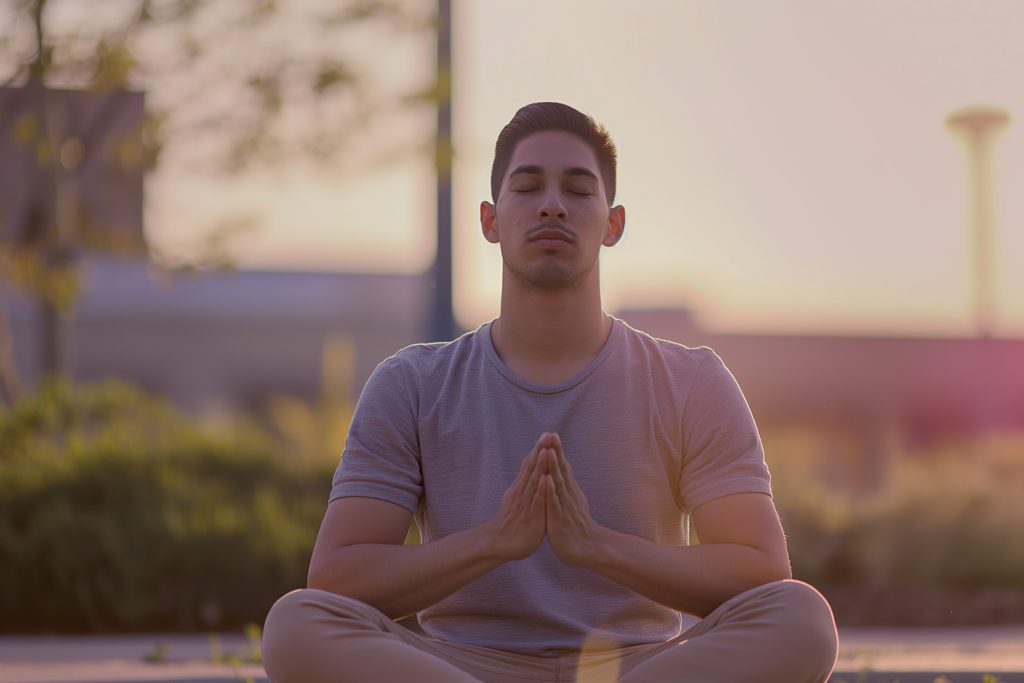
Mindfulness and its Effects on Sleep Quality
Discover how mindfulness improves sleep quality with practical techniques like meditation and body scans. Learn to enhance rest and relaxation effectively.

Did you know that all it takes is 20 minutes a day of mindfulness to really impact your sleep? It’s true! Mindfulness has become a hot topic for those in the health community, and rightfully so. There have been numerous studies conducted in recent years that showcase the real—and sometimes quick—impact of what mindfulness can provide for your health. If you’re curious to learn more about mindfulness and how it impacts sleep, then you’ve come to the right place.
In this article, we’ll dive deep into the connection between mindfulness and sleep, how it improves sleep quality, and some techniques you can try to incorporate mindfulness into your daily routine. We’ll explore some of the best ways you can encourage better rest while also limiting your stress levels and promoting better health. Without further ado, let’s first examine how mindfulness helps your sleep.
Understanding the Connection Between Mindfulness and Sleep
For those who may not know, mindfulness is the ability to be in the present moment without judgment, often practiced in the form of meditation. Many people have used mindfulness in recent years to help them with a wide range of concerns, ranging from stress to chronic illness to other issues that require coping mechanisms (Source: Current Opinion in Psychology). But how does mindfulness connect to sleep, and precisely in what manner?
As you might have already guessed, mindfulness’s impact on the body is positive. You feel more relaxed and become more present, and you may even perceive less stress than you did before. Researchers have already identified the ways in which mindfulness has been beneficial to patients who may struggle with insomnia as well as other sleep disturbances or sleep disorders. Some have even proven how mindfulness has a positive effect on sleep to improve the quality of one’s nightly rest. Let’s explore more specifically what happens to your sleep when you practice mindfulness regularly.
How Mindfulness Improves Your Sleep Quality
Mindfulness—whether you do meditations, body scans, or another practice—can provide significant benefits for your overall health, improving the quality of your sleep. There are several ways that mindfulness impacts your sleep, including the following ways:
- Reduction of Stress: One of the most challenging parts of getting quality sleep is ensuring that you feel relaxed and ready for sleep. For many people, including cancer patients, stress can weigh heavily on them and limit their sleep. However, one study on cancer patients showed that mindfulness helps them become more resistant to stress and pain, allowing them to process their challenges and sleep better without as much stress (Source: Acta Oncologica).
- Improved Sleep Duration: If you struggle to get enough sleep every night, mindfulness practices might be the best option for you. Mindfulness interventions after work have been shown to help improve sleep duration and quality, allowing people to detach from their work and relax before they go to sleep. It also only takes a few minutes a day, so it is easy to benefit from this practice!
- Alleviating Sleep Disorder Symptoms: For those who struggle with insomnia, mindfulness could prove to be a surprisingly powerful antidote to sleepless nights. Meditation as a mindfulness practice could be used as a form of noninvasive treatment to limit the symptoms of insomnia and other related sleep disturbances (Source: PubMed). However, the best results are found in the long term after at least a few months.
These are just some of the many benefits of mindfulness practices. As you can see, mindfulness practices can improve your sleep and help you enjoy longer, more quality rest from the moment you start your bedtime routine to the moment you wake in the morning. However, now, it’s time for us to look at the ways you can incorporate this into your routine and the best methods for sleep enhancement.
The Best Mindfulness Techniques to Use for Better Sleep
Fortunately, you have a few options to choose from for mindfulness techniques. Two of the most popular include meditation and body scans, both of which allow you to become intimately aware of how you feel, your surroundings, and more. Here are some tips on how to use these for sleep:
- Mindful Breathing: This is a simple mindfulness technique that involves taking a few moments to breathe deeply. It can be as easy as trying a breathing method of your choice or simply inhaling and exhaling deeply, focusing on your body’s sensations and how you feel in the present moment.
- Body Scan Meditation: The next method you can try is a body scan meditation, which is an opportunity to take inventory of your mind and body. During this session, you’ll get comfortable, close your eyes, take some deep breaths, and then start with the top of your body and move to your lower body. As you inhale and exhale, notice how you feel and what sensations you experience.
- Mindfulness Meditation: One of the most practiced techniques, mindfulness meditation involves intently focusing on your breathing and bringing your mind into focus on the present. Every time you think about the past or future, bring your attention to where you are and what you feel. It can take practice, but it is a great place to start, even if you only do it for 20 minutes!
- Guided Visualizations: If you’re just starting out, guided visualizations are an excellent opportunity for you to get used to setting aside time to meditate or visualize pleasant imagery. You can listen to any number of tracks, whether they are on social media, streaming services, or even your favorite applications for mindfulness and meditation.
No matter what you choose to practice, mindfulness is all about what resonates with you. With consistency and dedicated time to finding the best practice for you, you can experience the benefits of great rest and more relaxation in the future!
Make Time for Mindfulness in Your Bedtime Routine
With so many benefits to mindfulness techniques, you can encourage better rest and help alleviate common sleep disturbances. We hope that this article taught you something new and inspired you to take action! What practice will you incorporate into your bedtime routine?

Written by
Marie Soukup
Marie Soukup is a seasoned copywriter, editor, and Integrative Nutrition Health Coach with a certificate from the Institute of Integrative Nutrition (IIN). With years of experience working with brands across diverse industries, Marie is passionate about holistic health and crafting compelling content.
Download Pillow
Get help
Press & News
Legal
Connect
X (Twitter)
Company
Copyright © Neybox Digital Ltd.



